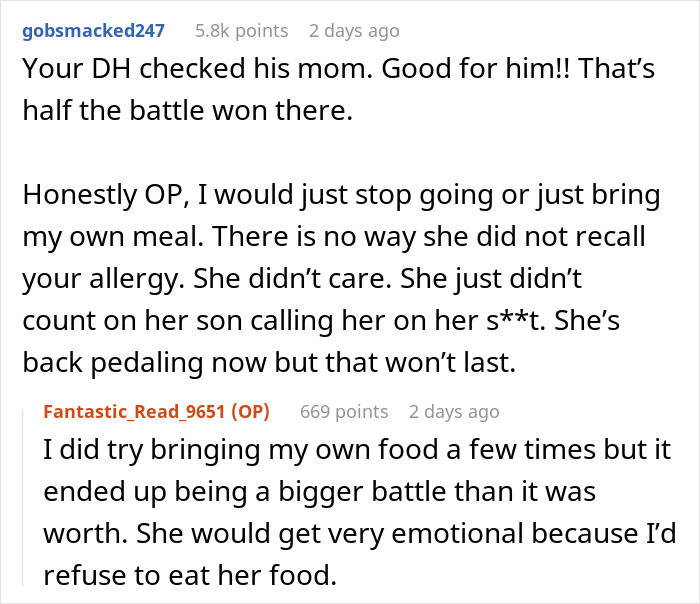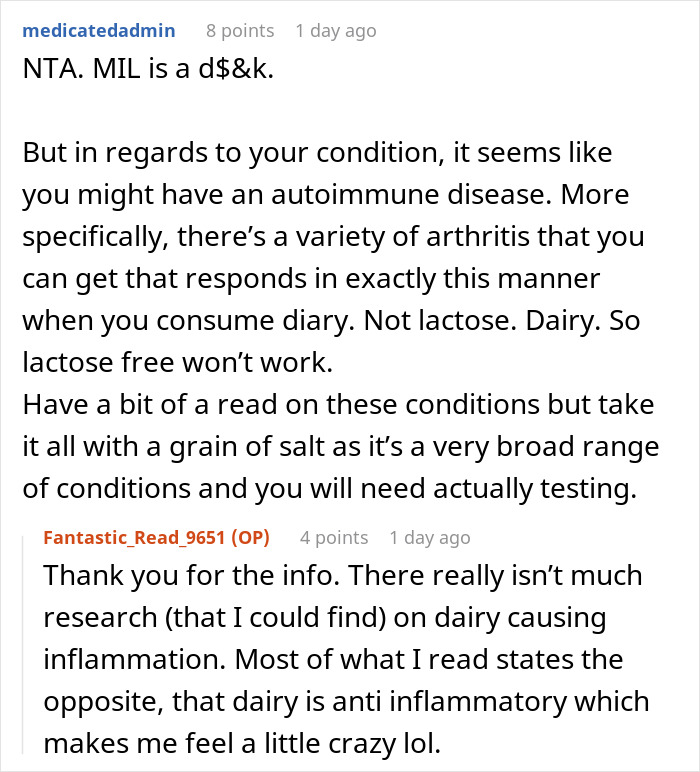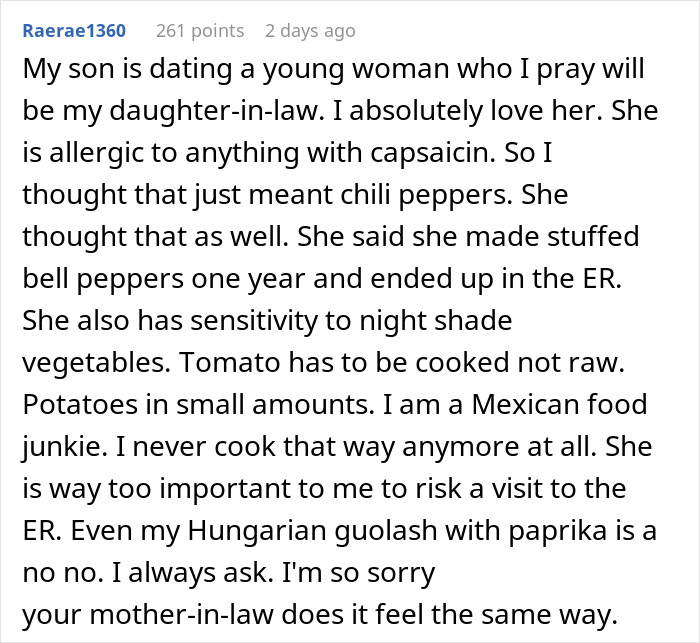Being compatible with your partner unfortunately doesn’t ensure that their family will find you equally as charming as they do; hence, all the dealing with the in-laws jokes, and horror stories, too.
For this redditor, the in-law horror story was based on her mother-in-law including ingredients the OP was allergic to in the food she would make. In addition to preparing everything with allergens, the MIL blamed her for causing drama, too. Scroll down to find the full story below.
Having meals together is a common way for family members to bond

Image credits: Pavel Danilyuk / Pexels (not the actual photo)
This woman’s MIL would add ingredients she was allergic to into the food she was making





Image credits: Liza Summer / Pexels (not the actual photo)







Image credits: Lisa Fotios / Pexels (not the actual photo)








Image credits: Karolina Kaboompics / Pexels (not the actual photo)


Image credits: Fantastic_Read_9651
Allergies affect millions of people, some of whom experience severe allergic reactions
Needless to say, allergies are not something to be taken lightly; even though their severity differs from person to person, it can be life-threatening due to anaphylaxis that exposure to allergens can trigger. According to CDC’s National Center for Health Statistics, in the US, as much as one-in-three adults and more than one-in-four children are dealing with a seasonal allergy, eczema, or food allergy (as of 2021).
Food Allergy Research & Education (FARE) reports that some of the most common ones—food allergies—affect roughly 33 million Americans, roughly 40-50% of whom have experienced a severe allergic reaction. Based on data from the recent decades, the number of people—children in particular—with food allergies is seemingly on the rise, as, according to FARE, the prevalence of such allergies among kids has reportedly increased by 50 percent between 1997 and 2011, and again up by 50 percent between 2007 and 2021.
The OP admitted not being entirely sure if it was a food allergy or some other condition that caused it, but she knew that her body reacted negatively to dairy. She noted that it could have been a sensitivity or intolerance, too, which is another condition many people deal with on a daily basis. According to MedlinePlus, roughly 65% of the population has a reduced ability to digest lactose—a sugar found in dairy products—after infancy.
It’s not uncommon for women not to get along with their mothers-in-law
Whether it was an allergy, an intolerance, or anything else, for that matter, the OP’s mother-in-law didn’t seem to be too concerned about it, as she would often add dairy products to her cooking. In an update the redditor shared, she revealed that the woman was even caught adding butter to the OP’s dairy-free meal, which shows that her actions must have been deliberate.
It’s unclear why the woman treated her daughter-in-law the way that she did, but it’s not uncommon for people not to get along with their in-laws. A recent study on affinal relationships found that both men and women have more conflict with their mothers-in-law rather than with their own mothers; not only that, mothers-in-law report having more conflict with daughters-in-law than with their actual daughters, too.
Fortunately, the OP’s soon-to-be husband sided with his significant other; after quite a lengthy session of letting his mom know how he felt about her actions, he, together with his fiancee, told the rest of the family that they would love to have them over for dinner at their home, but they won’t be joining the family for dinner at the OP’s in-laws’ house anymore.
Fellow netizens shared their thoughts in the comments, the woman replied to some of them























